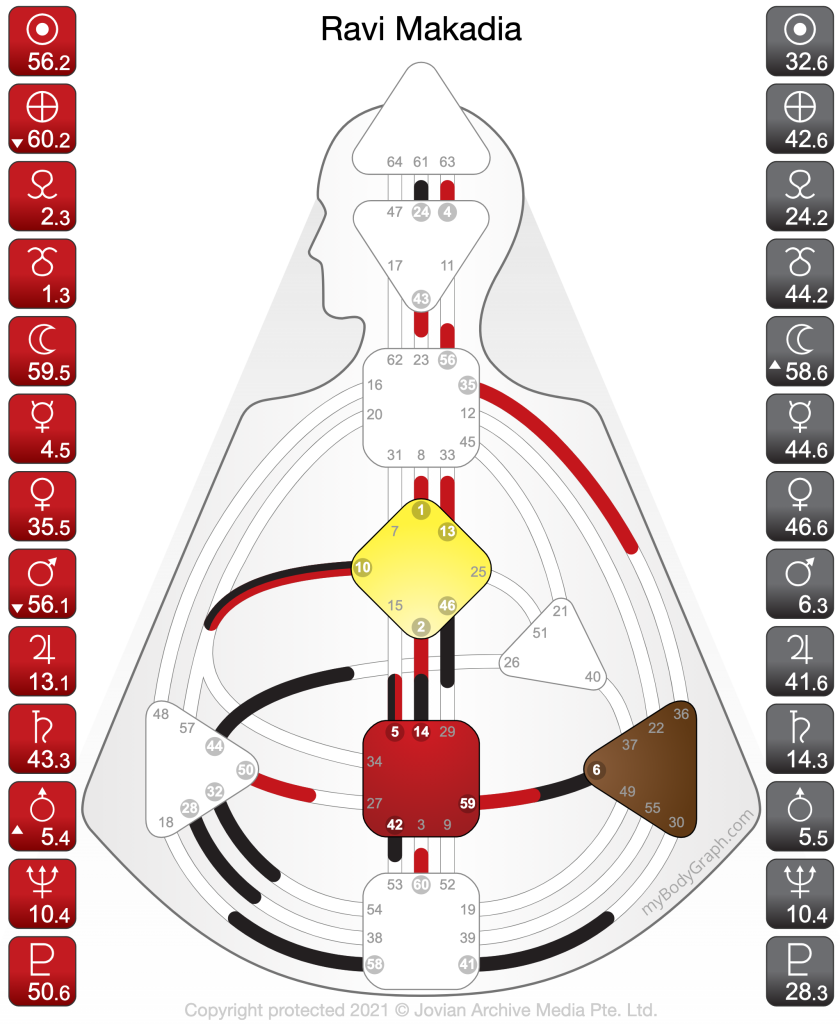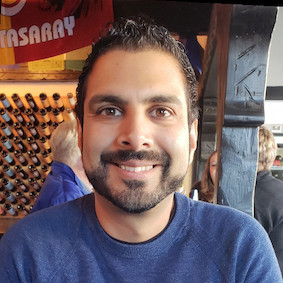Contents
The journey started when I decided to transition out of my day-to-day role at my last startup in search of something more fulfilling. I left with one purpose to do something that positively impacted humanity. I started my journey by disconnecting from technology, working with my hands, and diving into reading. I would often interview people with ideas while brainstorming my own ideas. That’s when Boris reached out to me with the longest job description I had ever seen, something that brings me a ton of joy is listening to people pitch a company or an idea and playing devil’s advocate, so I got to work.
The Initial Connection
Boris was looking for a technical cofounder for a healthcare startup, so I start reading about his job description and it is super detailed. I had time at this point in my life, my baby girl wasn’t born yet, and I was in an exploratory stage in my career truly trying to figure out the next step of my journey, taking a much-needed break (I miss those days). My initial reaction was great, finally a breath of fresh air of someone who put in the thought of what they were looking for and had the ability to communicate it, both great and necessary attributes of a leader.
So I began the roller coaster ride of the vetting process, playing devil’s advocate on his idea and poking holes to see how well thought out he was. We went back and forth on many aspects to cover in one blog post but will do my best to capture the main ones.
Vetting the Idea
The first and foremost issue I brought up is one I often bring up, what makes you more likely to succeed doing this business than anyone else, mainly focusing on the aspect that he had no professional medical background. We still debate this topic to this day, each time we delay it is because it’s not necessary to get to the next step in this journey. The premise of what we are doing is valid, at least as valid as anything in medicine can be today. There is an issue with metabolic disease of people globally, although most prevalent in the US today, it is just a matter of time before it becomes similar in other developing countries. The founding principles are sound, mainly around point-in-time tests that can be misleading, real-time is better. The timing is right, we are on the precipice of a bunch of new biosensors coming to marketing. We have a great sensor that is available today CGM (Continuous Glucose Monitor). There is some validation in space with competitors such as Levels. The idea is solid around creating personalized health recommendations based on clinical trials/studies that can be cited alongside validation of changes with the sensors makes sense. So why do we need a medical professional today if we are relying on existing confirmed knowledge and a mechanism of validation through objective data?
Most people with an idea I speak to, typically just have that, idea without too much work done beyond validating that it is something people want or it solves a problem via their network of friends and family. I got to say Boris exceeded my expectations here, one of the early exercises I will do is go look for competitors or others executing similar ideas and start bringing them up one by one in our conversation to see if they have even done any basic due diligence. I was blown away by Boris’s responses to the first few that I brought up, the guy sent me walk-throughs of their products with videos of unboxing and outlined differentiators and what he deemed good and bad about their offering. The part that was most impressive is that he had already done it. This was the point when I realized this was different, that Boris was the real deal.
Vetting Personality & Culture
The next part of our journey was interesting, I wouldn’t say it was good or bad explicitly just different from what I had personally experienced. Boris had laid out a laundry list of cultural and personal principles that we started to get aligned on and discuss. What I didn’t know was going on behind the scenes until a bit later in the process is that he had built out an exhaustive list of questions he was answering from the conversations we were having, which he eventually showed me to fill in the remaining blanks. This served us well to help us understand each other’s personalities and goals in order to be better aligned in our conversations.
Now the questions were very understandable, and I didn’t think it was too much to ask in your quest to find a suitable co-founder for a company with a vision you want to execute, versus a company to make money, because we are in it for the long run, our alignment is even more critical. But then he asked me to take 5 personality tests and had me pay for them, now I am not a firm believer in personality tests, I think the most critical aspect of working with someone is both sides being open-minded and critically thinking to debate decisions (which we had done really well throughout our conversations). But nonetheless, I entertained him in participating in these, I nearly lost my shit when I got to the one that just had me enter my birthday and time and it told me a bunch of stuff about myself. I went back to him and asked him if he believed in astrology etc.., we had a good conversation about that and religion and our stances. But aside from that test (which we decided to omit) the others actually identified where we were aligned in our thought process as well the gaps, so in the end, I found this very valuable in setting the foundation for our working relationship.

All of this led us to establish some great principles in our organization, you can read more about them here.
The Real Test
The final bump in the road before we committed to Theia came out of the left field for me. At this point we had conversed a lot and gone back and forth on business and life principles I would have never thought in a million years he was not vaccinated for COVID. Now this subject is super polarizing, but the fact of the matter is that it’s not black and white. However, the thing that was a question for me, is that this guy who is priding himself on digesting and understanding medical research to come to conclusions is coming to the conclusion that he shouldn’t get vaccinated. I am not going to lie my initial response was visceral and I am like great I spent all this time and really like working with this guy but this one thing just shattered everything we had built.
This was our true test, we needed to debate each other on our conclusions and either agree to disagree or sway the other. This exercise would have never worked if either of us were close-minded, so we got to work citing our research and the reasons we have come to our different decisions. So my initial reaction was very negative and I am wrong in having that assumption, in reality, the reasoning that Boris had to not rush to get the vaccine was from a place of understanding risk based on demographic, to simplify it was because he was healthy he felt he was at lower risk of hospitalization combined with his inherent distrust in medicine which is through his experience, which is the opposite of me, I have had no major health issues and am generally trusting of medical professionals. So really when I unpacked his logic and decision making it was not a polarizing one, but rather a personal one. I think the piece that was missing from his decision-making was collective rather than personal, so shining light on how his decision affects those around him was the major driver that shifted his decision into getting it.
The Resulting Mission
Now that we had built a level of trust with one another we agreed to a mission to shift healthcare globally from reactionary to preventative, and exploit emerging biosensor technology to increase the availability and visibility of real-time biodata into personalized sustainable actions. The process of due diligence into metabolic disease was truly eye-opening, as someone who doesn’t go to the doctors and generally prescribes to the philosophy of if I feel good, eat well (limit processed foods), remain active (I enjoy hiking) I am healthy. The number of diabetics in this country and globally was truly spectacular, and the downstream consequences of being diabetic were life-changing, the thought that all of this was solvable through diet and nutrition made it a problem I became now obsessed with solving.
There were a lot of things that led us to hone in on what we are doing, but one of the most notable things that I immediately related to was the 2nd and 3rd order consequence of technology and innovation. When we had a growing population and scarcity paired with labor-intensive jobs we needed a different type of nutrition for our survival. I believe a majority of people operate from a state of wanting to help people and do good, the people and companies that developed ways of preserving and processing food probably came from a place of wanting to solve world hunger. The advent of fast food came about to save people time in their busy days. Now fast forward to a country where most people are sitting and technology has reduced the amount of physical labor we have to do, and these seemingly noble things that were originally well intended are contributing to disease.
The Approach
The last piece of the puzzle to align upon was the approach to solving the problem. I and Boris are on different ends of the spectrum when it comes to health and fitness, Boris has tried every diet and goes to the gym religiously, whereas I have never dieted and the only time I went to the gym routinely was right before my wedding but realized its not my thing. This is where real-time sensors, specifically continuous glucose monitors were a great tool to help tackle the problem. With them, we were able to semi-immediately measure the impact of diet and lifestyle changes, so that we can focus on the highest impact changes that we feel we can make sustainably (ie. for the rest of our lives).
We were now off to the races on developing a technology to help people discover small sustainable changes that have a profound impact on their future health. Check out our debrief on the first round of our users here.

